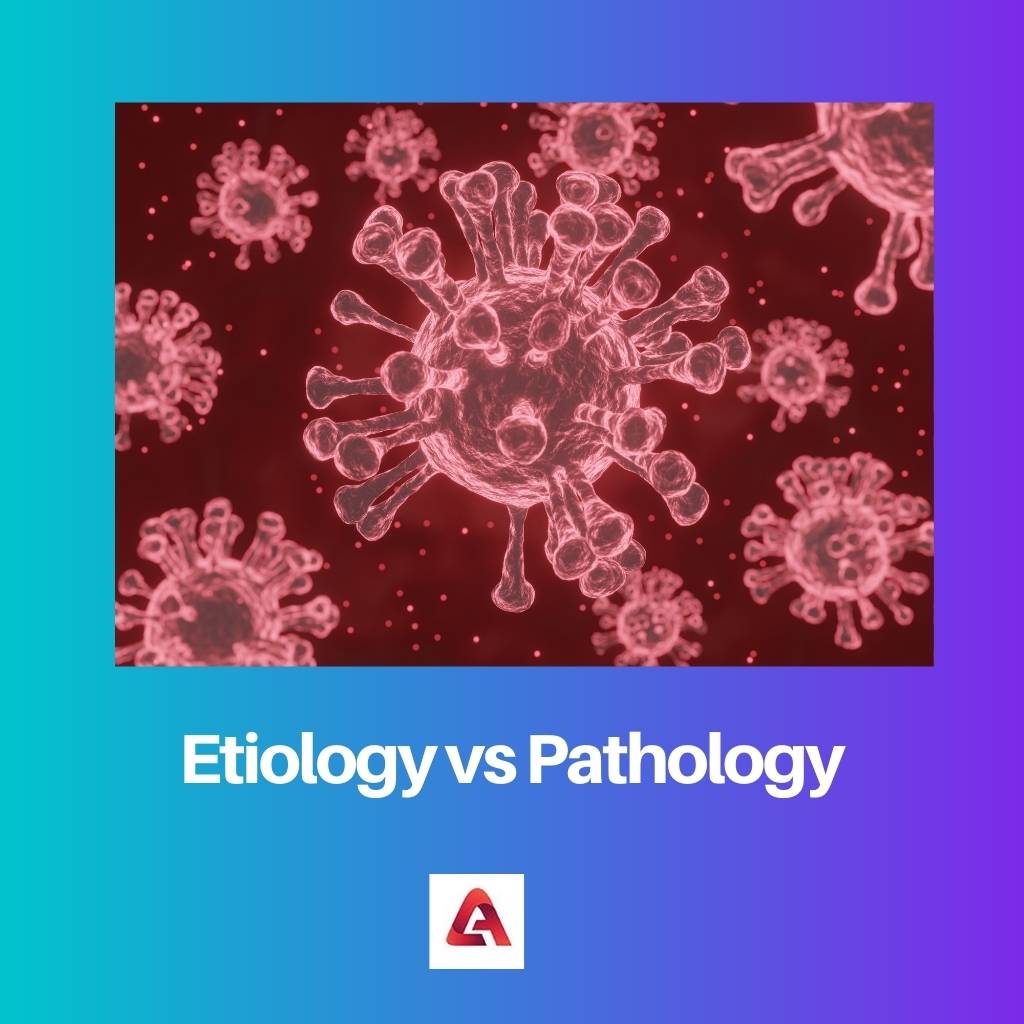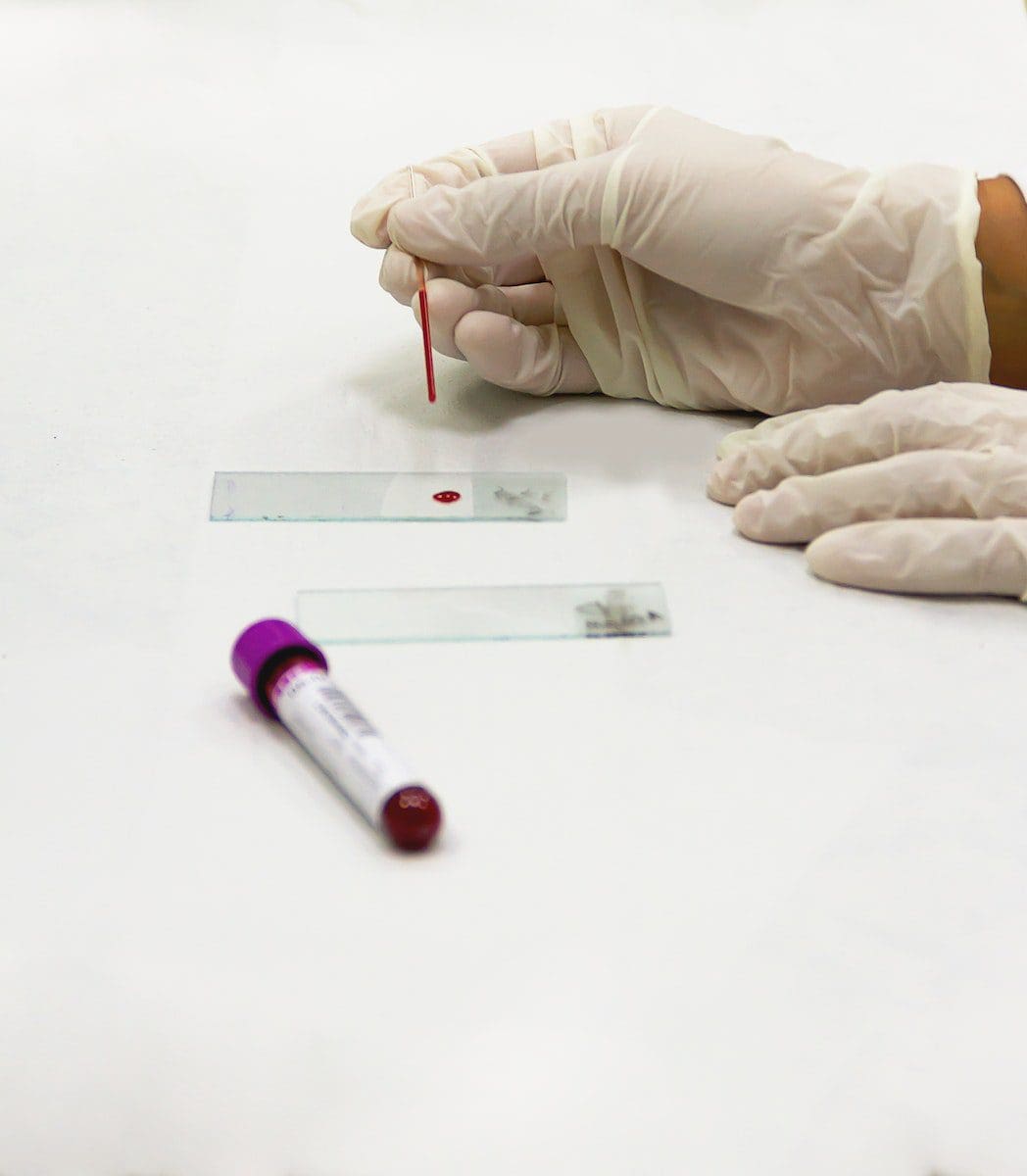A person with a science background can easily differentiate between these scientific terms, etiology and pathology. However, it becomes a headache if the same is preached to others.
Although these two terms are closely related, they have only one significant difference. The terms aetiology and pathology are scientific and related to diseases.
Scientists and doctors also use etiology and pathology to refer to a specific disease. These terms are almost synonymous and are thus used most of the time interchangeably.
Key Takeaways
- Etiology is the study of the causes of a disease or disorder, while pathology is the study of the nature and effects of a disease or disorder on the body.
- Etiology focuses on the underlying factors that lead to the development of a disease, such as genetic, environmental, or lifestyle factors. In contrast, pathology focuses on the physical and biochemical changes that occur in the body due to the disease.
- Etiology and pathology are complementary fields of study, as understanding the causes of a disease is essential to developing effective treatments and preventing its spread.
Etiology vs Pathology
Etiology is the study of the causes of disease, including its biological and environmental factors. This can include genetic factors, lifestyle factors, exposure to pathogens, and other factors contributing to disease development. Pathology studies the structural and functional changes in an organism due to disease. Pathologists examine tissues, organs, and bodily fluids to determine the effects of the condition on the body.

Etiology is categorized as the study of the cause of diseases. It is also known as aetiology.
Pathology is categorized as the detailed study of symptoms of various diseases. It is the latter process of the study of disease.
Comparison Table
| Parameters of Comparison | Etiology | Pathology |
|---|---|---|
| Stage | Former process of study. | The latter process of study. |
| Field | Study regarding the cause of the diseases. | Detailed study of symptoms of various diseases. |
| Also known as | Aetiology | Pathogenesis |
| Discoverer/ Important person associated | Robert Koch’s discovered the process of aetiology. | Rudolph Virchow is known as the father of pathology. |
| Types | Idiopathic, Extrinsic, Intrinsic. | Molecular pathology, clinical pathology, and anatomical pathology. |
| Consequence | Associated with the initial stages of an injury. | Associated with the final stages of an injury. |
| Importance | Important in the prevention of the occurrence of diseases | Essential for the cure of diseases. |
What is Etiology?
A cause or a set of causes of an injury or disease of the condition is referred to as aetiology. It also refers to the manner of causation of an injury.
Its work is the prevention of the occurrence of several diseases as well. The meaning of the word aetiology is to give a reason for something.

What is Pathology?
Detailed research and study of disease, injury, or health conditions’ effects and symptoms are called pathology. The pathology process also incorporates various medical practices and biology research fields.
General pathology is concerned with the contemporary medical field. This field is concerned with medical specialities, which are different but related.

Main Differences Between Etiology and Pathology
- Etiology is the former process of study, whereas pathology is the latter process of disease study.
- Etiology is categorized as the study of the cause of diseases. But pathology is ranked as the detailed study of symptoms of various diseases.
- Etiology is also known as aetiology, whereas pathology is known as pathogenesis.
- Robert Koch’s discovered the process of etiology. At the same time, Rudolph Virchow is the father of pathology.
- Etiology is of three types. Idiopathic, Extrinsic, Intrinsic. Pathology comprises molecular pathology, clinical pathology, and anatomical pathology.
- Etiology describes the process associated with the initial stages of an injury or disease. In comparison, pathology describes the process related to the final stages of an injury or illness.
- Etiology is essential in the prevention of the occurrence of diseases, but pathology is vital for the cure of diseases.

- https://www.hand.theclinics.com/article/S0749-0712(03)00079-9/abstract
- https://www.sciencedirect.com/science/article/pii/S0140673601612637

The comparison table and the detailed explanations leave no room for confusion. It’s an effective way to highlight the distinct aspects of etiology and pathology.
I couldn’t agree more. This kind of content is a necessity for students and professionals in the medical field.
Absolutely. The structured approach to the topic is highly informative and beneficial for understanding these concepts.
I think that many may find it difficult to understand, but it is a necessary part of learning.
Indeed, sometimes complex concepts like these need to be broken down to be fully comprehended. Still, the post gives a comprehensive comparison.
The clear distinction between etiology and pathology, along with their significance in prevention and cure, is excellently covered in this article.
I agree. The article effectively conveys the critical differences and roles of etiology and pathology in healthcare.
Absolutely. The importance of these scientific terms is well-articulated and easy to understand.
This is a well-researched article that clarifies the differences between etiology and pathology in a comprehensive manner.
Absolutely! It’s a valuable resource for anyone interested in the medical field.
Yes, it’s not these differences are explained so clearly, but this article does it well.
This article is thorough and detailed, making it a valuable resource. It’s presented in a way that’s easy to grasp.
I concur. The information provided here deserves attention and appreciation.
I agree with you, Graham. The clarity and depth of the content are commendable.
This post is such an eye-opener. I think it is great that we finally have more information about this topic. I really appreciate it and I’m sure many others do too.
Yes, this post has effectively highlighted the significant differences between etiology and pathology. It’s quite informative.
I completely agree with you Wood Becky! The information shared is crucial for understanding and further research.
The article effectively highlights the primary distinctions between etiology and pathology, making it a valuable resource for anyone seeking clarity on the topic.
Indeed, the post serves as a comprehensive reference for understanding these scientific terms and their implications.
The article is an absolute gem for those interested in the medical and scientific fields. It sheds light on the differences between etiology and pathology with clarity and depth.
Absolutely. The content is valuable and enlightening for those delving into the intricacies of medical science.
I couldn’t agree more. The article provides a clear and in-depth exploration of a complex subject.
I appreciate the breakdown of the historical background associated with etiology and pathology. It adds a unique perspective to the topic.
Indeed, understanding the historical context deepens our comprehension of these scientific terms.
Very true. It’s an interesting aspect that provides a well-rounded insight into the subject.
The post also clearly explains the types and importance of etiology and pathology. It’s a concise but comprehensive guide to the topic.